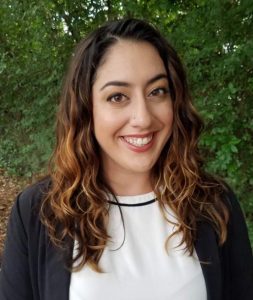The Departments of Allied Health Sciences (DAHS) Office of Research and Scholarship and Neurology have awarded Nicole Short, an assistant professor in the Department of Anesthesiology, with its 2020-2021 Sleep Innovative Research (SIRG) grant. The SIRG program launched in 2018 thanks to the generosity of the Eddie and Jo Allison Smith Family Foundation; the program leads an effort to build an internationally recognized program of research in sleep science at UNC-Chapel Hill. The competitive grant process funds UNC-Chapel Hill investigators up to $10,000 for their sleep-related project.

John Grose, the associate chair of the Office of Research and Scholarship in the DAHS, said the sleep grants lay the groundwork for a major, comprehensive focus on sleep science at the University.
“These pilot grants are essential to enable promising investigators to launch a research endeavor that we hope will lead to major extramural funding,” Grose said.
Short’s project, titled “Mechanisms underlying sleep and substance use risk among women trauma survivors: A multimodal intensive longitudinal pilot study,” aims to research the intersection of poor sleep and its contributions to negative outcomes following trauma exposure, particularly among women. Specifically, Short will recruit women following sexual assault in order to assess their sleep, potential for substance use, and other physiologic effects.
Short, whose interest in the study of sleep began as an undergraduate student at the University of California, Berkeley, said her work as a research assistant at the Veterans Affairs Palo Alto Health Care System highlighted a link among sleep, trauma, and substance use.
“It’s really exciting to potentially be able to figure out which problem is driving the other,” Short said. “We sleep every single day, but we don’t often think about it.”
Short said the results of her research could provide insight and data in developing a sleep intervention in order to mitigate longer-term substance use issues. Short said studying those who have experienced sexual assault will be an important population to research because many of them seek emergency care, which is a valuable opportunity to provide secondary prevention.
“They’re at much higher risk for PTSD,” Short said. “It’s a very invasive trauma. It’s interpersonal, and it can involve people you know and may trust or want to trust, which makes it harder to recover from.”
The grant funding will help Short collect and better quantify pilot data gathered from wearable technology.
The Department of Anesthesiology houses the Institute for Trauma Recovery, where Short is an investigator.
The DAHS launched a quarterly series of sleep forums in 2018 with sessions featuring sleep labs and tools available to researchers on campus. Short received her PhD from Florida State University in 2019. John Grose, PhD, is faculty in the Division of Speech and Hearing Sciences and specializes in psychoacoustics in the Department of Otolaryngology.
